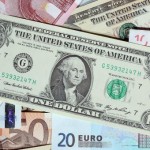The yen advanced against the euro on Tuesday, after Russian President Vladimir Putin said that he supported a request from Ukraine’s breakaway region of Crimea to join the Russian Federation, boosting demand for safer investments.
EUR/JPY slid to a daily low of 141.03 at 08:24 GMT, after which the pair consolidated at 141.10, losing 0.4% for the day. Support was likely to be received at March 17th low, 140.90, while resistance was to be met at March 13th high, 143.38.
Yens demand was supported after it became clear that Russia’s President Vladimir Putin said that he is ready to sign an accession treaty with Ukraine’s breakaway region of Crimea to join the Russian Federation, regardless of the imposed sanctions by the United States and the European Union.
The yen has advanced 1.1% in the past week amid escalating tension between the West and Russia, being the best performer of 10 developed-nation currencies tracked by Bloomberg Correlation-Weighted Indexes. At the same time, the euro was little changed.
Meanwhile, the gauge of economic sentiment for Germany, the largest economy in the euro zone, probably slowed down to a reading of 51.8 in March, according to the median estimate by experts. Last month the index came in at a value of 55.7. The official results from the monthly survey by the ZEW (Zentrum für Europäische Wirtschaftsforschung) are to be announced at 10:00 GMT today.
Yesterday, demand for the 18-nation common currency was pressured after the annualized rate of consumer inflation in the single currency zone was reported to have weakened in February, increasing bets the European Central Bank will have to introduce new measures in order to spur economic growth.
The annualized HICP came in at 0.7% last month, a level last seen during October 2013, which was still far below central bank’s inflation objective of 2%, that provides price stability. Experts had anticipated that the annual inflation rate will remain steady at 0.8% in February.
Elsewhere, EUR/CHF slipped to a daily low at 1.2150 at 7:50 GMT, after which consolidation followed at 1.2153, down a mere 0.02% for the day. Support was likely to be found at March 17th low, 1.2133, while resistance was to be encountered at March 13th high, 1.2168.





